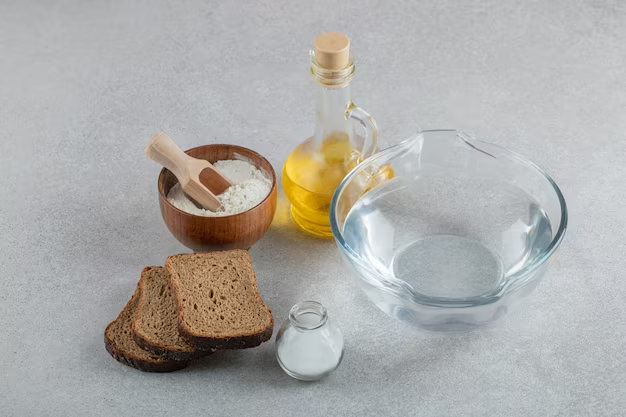
What vitamin deficiency causes you to crave salt
Why am I craving salt all of a sudden? That intense craving for salty foods could be your body’s way of hinting at a deeper issue—specifically, a vitamin deficiency. Salt cravings can sometimes be the body’s cry for minerals or other essential nutrients that are currently in short supply. Several vitamin deficiencies have been linked to an increased desire for salt, among them being a lack of vitamins D, B-complex, and A. Let’s journey through the fascinating science behind salt cravings and unveil how vitamins play a crucial role.
Introduction to Salt Cravings
What is the role of salt in human body? Salt, also known scientifically as sodium chloride, is an essential mineral our bodies need to perform a myriad of functions. It regulates fluid balance, maintains nerve function, and is involved in muscle contractions. However, the craving for salt can often be misunderstood. It’s not just a cry for sodium; our body might be demanding a balance of various nutrients. For instance, а vitamin D deficiency, which helps the body absorb calcium, can disrupt the body’s mineral balance, possibly leading to enhanced salt cravings.

The Science Behind Salt Cravings
Role of Electrolytes in the Body
Our body relies on a delicate balance of electrolytes – minerals that include sodium, potassium, calcium, and magnesium, that carry an electric charge and are essential for life. These electrolytes are pivotal for hydration, blood pH, and overall cellular health. In the realm of electrolytes, sodium is often singled out, yet it’s the harmony among all these minerals that is crucial.
- Sodium helps regulate fluid balance and blood pressure.
- Potassium is key for muscle function and a steady heart rhythm.
Imbalances can lead to cravings, as our body seeks homeostasis, or balance, among these elements.
Connection Between Salt Cravings and Vitamin Deficiencies
When faced with a vitamin deficiency, our body may demand more salt as certain vitamins have a role in maintaining mineral balance. Vitamin D, for instance, promotes calcium absorption in the gut, and a lack of it could disrupt the equilibrium between these minerals, possibly manifesting as a desire for salty foods.
Vital Vitamins and Their Link to Salt Cravings
Vitamin D and Its Impact on Mineral Balance
Vitamin D—often dubbed the “”sunshine vitamin””—is critical for the absorption of calcium, another mineral that plays a significant role in muscle function and bone health. Without sufficient vitamin D, the appetite for salty foods may be your body attempting to rectify a calcium shortfall. Here are two key points about how vitamin D affects our salt cravings:
- Insufficient vitamin D leads to poor calcium absorption, which might heighten the need for sodium as the body tries to balance its mineral levels.
- A lack of sunlight, common in winter months, may result in diminished vitamin D levels, potentially leading to increased salt cravings.
B-Vitamins: The Energy Production Connection
B-vitamins consist of a group of eight water-soluble vitamins that are integral to converting food into energy. Deficiencies in B-vitamins can result in a slump in energy production and lead to fatigue. Since the body often associates salt with an energy boost due to its role in electrolyte balance and hydration, it’s not surprising that a deficiency in B-vitamins could trigger salt cravings.
The Role of Vitamin A in Hormonal Balance
Vitamin A is vital for many processes in the body, including vision and immune function. Interestingly, it also plays a part in maintaining hormonal balance. When vitamin A levels aren’t optimal, this can upset hormonal operations that influence fluid balance and, as a consequence, may increase our desire for salt to compensate for these imbalances.

Not Just Vitamins: Other Factors Contributing to Salt Cravings
Hydration and Kidney Function
Staying well-hydrated is a key factor in managing electrolyte balance. The two go hand in hand:
- Adequate water intake ensures electrolytes are properly dissolved and functioning.
- Healthy kidneys regulate the balance and concentrations of these minerals, affecting our desire for salty foods.
Adrenal Health and Stress Levels
The adrenal glands, which sit atop the kidneys, release hormones that regulate stress, blood pressure, and electrolyte balance. Chronic stress can overtax the adrenals, leading to adrenal fatigue and a disrupted mineral balance. This, in turn, can manifest as an inexplicable craving for salt.
Diet and Lifestyle Influences
Lastly, diet and lifestyle play a significant role in managing salt cravings. Processed foods are typically high in sodium, and regular consumption may condition the palate to prefer and crave saltier tastes. Additionally, sedentary lifestyles may affect metabolism and cause fluctuations in nutrient requirements, potentially leading to abnormal cravings.
Decoding Your Cravings: When to Take Them Seriously
While occasional cravings for salty foods might not be a cause for concern, persistent or intense salt cravings can be a sign that it’s time to pay closer attention to your body’s needs. It’s important to listen to these signals and understand when our cravings are pointing towards an underlying health issue, such as a vitamin deficiency. Seeking guidance from a healthcare professional can help determine if there’s a nutritional gap that needs to be filled.
When to Consult a Professional
If you consistently find yourself longing for salty snacks, despite making healthy dietary choices, it might be worth discussing with a healthcare provider. Here are a few signs when professional consultation is advisable:
- Your salt cravings are accompanied by fatigue, weakness, or other unexplained symptoms.
- You notice that your salt cravings are persistent and not satisfied by a balanced diet.
A simple blood test can usually determine if there are any vitamin deficiencies or other health concerns that may be driving your salt cravings. The sooner a deficiency is detected, the quicker you can work on addressing it.
Understanding Your Body’s Signals
Our body communicates with us in various ways, and cravings are just one form of communication. Deciphering these signals can help us adjust our diets and lifestyle choices to support our well-being. When you begin to see your cravings as messages rather than mere whims, you can approach your nutrition and health proactively.
Managing Salt Cravings with Diet and Supplements
Dietary Changes to Reduce Salt Cravings
Making mindful dietary choices can significantly diminish the frequency and intensity of salt cravings. Here’s a two-step approach:
- Increase the intake of vitamin-rich foods, like fatty fish for vitamin D, leafy greens for vitamin A, and whole grains for B-vitamins.
- Balance electrolytes by integrating foods like bananas, avocados, and yogurt into your diet.
By consuming a diverse range of nutrients, you can better manage your cravings and support your body’s overall health.
The Role of Supplements in Managing Deficiencies
In some cases, dietary changes alone may not be sufficient to correct certain vitamin deficiencies. Here’s when supplements can be beneficial:
- When limited sun exposure results in low vitamin D levels, a supplement may be necessary, especially in areas with less natural sunlight.
- For individuals with specific dietary restrictions or absorption issues, a vitamin B-complex supplement can aid in maintaining the body’s energy production.
It is always best to consult with a healthcare provider before starting any supplement regimen to determine the appropriate dosage and to ensure that supplements are integrated safely with any existing health conditions or medication.

Conclusion: Balancing Nutrients for Optimal Health
Understanding the connection between vitamin deficiencies and salt cravings is essential for maintaining optimal health. By tuning into our body’s signals and responding with appropriate nutritional strategies, we can proactively address these cravings. This approach helps prevent potential health issues down the line and ensures we stay balanced and healthy. Remember, a well-rounded diet complemented by a healthy lifestyle is usually the best defense against unnecessary cravings and the best path to overall well-being.
FAQs About Salt Cravings and Vitamin Deficiencies
- Can drinking more water help reduce salt cravings?Yes, staying hydrated can help manage salt cravings. Adequate water intake helps maintain the balance of electrolytes in the body, which can minimize the urge to consume salty foods.
- Are salt cravings an indicator of a serious health issue?Salt cravings alone are not typically indicative of a serious health problem. However, if they’re persistent and accompanied by other symptoms, it’s advisable to consult a healthcare provider to rule out any underlying conditions.
- How can I quickly address a salt craving without consuming too much salt?Try satisfying a salt craving with foods that are naturally salty but also high in nutrients, such as olives, cheese, or a small handful of nuts. Alternatively, eating a balanced snack that includes protein, healthy fats, and complex carbohydrates can help stave off cravings.
- Which foods are rich in vitamins that could help reduce salt cravings?Foods rich in vitamin D include fatty fish like salmon and mackerel, egg yolks, and fortified foods. Leafy greens, legumes, and whole grains are good sources of B-vitamins. For vitamin A, options include sweet potatoes, carrots, and spinach.
- Is it harmful to indulge in salt cravings occasionally?Occasional indulgence in salty foods is not harmful for most individuals, especially if the overall diet is balanced and nutritious. However, it’s important to be mindful of daily sodium intake and stay within the recommended guidelines to avoid potential health risks.


